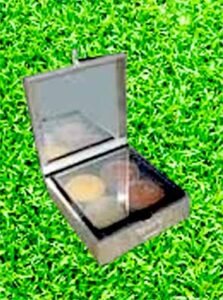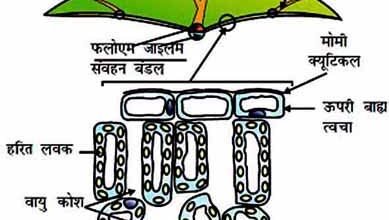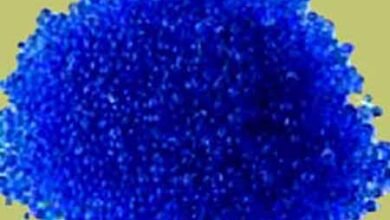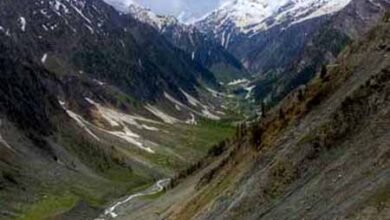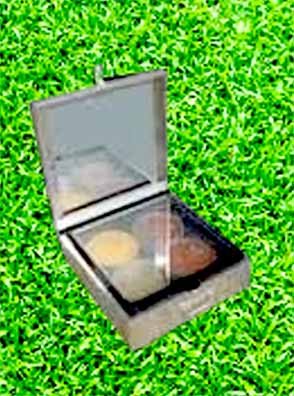
Related to Physics-173.
|
1. What is the minimum possible temperature? = -273 ° C. 2. What is the nature of sound waves? = Longitudinal. 3. Who produces the highest intensity sound? = Sperm whale makes sound up to 230 dB. 4. What is the maximum velocity of light? = Vacuum. 5. When sound waves move, do they take with them? = Sound energy. 6. Which concept confirms the first law of thermodynamics? = Conservation of energy principle. 7. Which has the highest ‘specific heat’ value? = Water. 8. Who is the best conductor of heat? = Silver, Gold, Copper. 9. Why does a diamond appear shiny? = Due to collective internal reflection. 10. Which scientist first rubbed and melted two pieces of ice? = Davy. 11. Light is made up of small particles, called? = Photon. 12. What is a vector Quantity? = Velocity. 13. How do stars get their energy? = Nuclear Fusion. 14. Transformers are used? = Change AC voltage level. 15. What is the unit of capacity of the lens? = Diopter. 16. Who is a chargeless particle? = Neutron. 17. The principle of the functioning of a rocket is based on the? = Momentum Conservation. 18. If the horse suddenly starts to walk, then the reason for the fall of the cavalry is? = Inertia of rest. 19. Who had told before Newton that all things are gravitated towards Earth? = Brahmagupta. 20. For cleaning a carpet, if it is beaten with a stick, what rule applies to it? = First law of motion. 21. Swimming in water is possible due to which law of motion of Newton? = Third rule. 22. Why do small pieces of camphor dance on the surface of water? = Due to Surface Tension. 23. For what reason does the droplet shape become spherical? = Surface Tension. 24. What is the phenomenon of light hitting a smooth surface and returning? = Reflection of light. 25. The law of Archimedes is related to = Physical law of buoyancy. 26. Iron needle sinks in water but the ship floats. On what principle is it based? = Principle of Archimedes. 27. Heat is a type of energy that can be converted into work. Who gave the first direct evidence of this? = Joule. 28. The thermocouple thermometer is based on which principle? = Seeback effect. 29. On what principle is complete radiation thermometer based? = Stefan’s law. 30. Which part of the Sun radiation heats the solar cooker? = Infrared ray. 31. By which method heat is transferred to liquids and gases? = Convection. 32. In which method of transfer of heat is the medium not necessary? = Radiation. 33. The method of heat transmission in which the particles of the medium do not move is? = Radiation. 34. What is the transmission of heat through molecular composition? = Convection. 35. In which method of transmission of heat, the molecules of matter do not move from one place to another by themselves? = Conduction. 36. Which concept confirms the first law of thermodynamics? = Energy Conservation. 37. The concept of internal energy meets which law of thermodynamics? = First law. 38. What does the specific heat of an object depend on? = Material of the body. 39. Which sound causes a sound to become thick or thin? = Pitch. 40. What is the speed of light in air? = 3 x 10 ^ 8 m / s. 41. For what reason does a coin in a vessel filled with water appear to be slightly raised? = Due to refraction of light. 42. A stick immersed in water appears to be bent due to which behaviour? = Refraction of light. 43. Can myopia defect be corrected? = Concave lens. 44. Can far-sight defects be corrected? = By convex lens. 45. In which the specific heat is maximum? = Water. Prof. Amarendra Kumar. ========== ========= =========== भौतकी से संबंधित-173.
1. न्यूनतम सम्भव ताप कितना होता है? = -273°C. 2. ध्वनि तरंगों की प्रकृति कैसी होती है? = अनुदैर्घ्य. 3. सबसे अधिक तीव्रता की ध्वनि कौन उत्पन्न करता है? = स्पर्म व्हेल जो 230 dB तक आवाज उत्पन्न करता है. 4. प्रकाश का वेग अधिकतम किसमें होता है? = निर्वात. 5. जब ध्वनि तरंग चलती हैं, तो वे अपने साथ ले जाती हैं? = ध्वनि उर्जा. 6. ध्वनि तरंगों की प्रकृति कैसी होती है? = अनुदैर्घ्य. 7. ऊष्मा गतिकी का प्रथम नियम किस अवधारणा की पुष्टि करता है? = ताप संरक्षण. 8. किसमें ‘विशिष्ट ऊष्मा’ का मान सर्वोच्च होता है? = जल. 9. ऊष्मा का सबसे अच्छा सुचालक कौन है? = चांदी, सोना,तांबा. 10. हीरा चमकदार क्यों दिखाई देता है? = उच्च आंतरिक परावर्तन के कारण. 11. किस वैज्ञानिक ने सर्वप्रथम बर्फ़ के दो टुकड़ों को आपस में घिसकर पिघला दिया? = डेवी. 12. प्रकाश छोटे-छोटे कणों से मिलकर बना है, जिसे कहते हैं? = फोटॉन. 13. सदिश राशि कौन-सी है? = वेग. 14. तारे अपनी ऊर्जा किस प्रकार प्राप्त करते हैं? = नाभिकीय संयोजन के फलस्वरूप. 15. ट्रांसफ़ॉर्मर प्रयुक्त होते हैं ? = AC वॉल्टेज का उपचयन या अपचयन करने के लिए. 16. लेंस की क्षमता का मात्रक होता है? = डायोप्टर. 17. कौन एक आवेश रहित कण है? = न्यूट्रॉन. 18. रॉकेट की कार्यप्रणाली किस सिद्धांत पर आधारित होती है? = संवेग संरक्षण. 19. अश्व यदि एकाएक चलना प्रारम्भ कर दे तो अश्वारोही के गिरने की आशंका का कारण है ? = विश्राम जड़त्व. 20. किसने न्यूटन से पूर्व ही बता दिया था कि सभी वस्तुएँ पृथ्वी की ओर गुरुत्वाकर्षित होती हैं? = ब्रह्मगुप्त. 21. कालीन की सफाई के लिए, यदि उसे छड़ी से पीटा जाए, तो उसमें कौन-सा नियम लागू होता है? = गति का पहला नियम. 22. जल में तैरना न्यूटन की गति के किस नियम के कारण सम्भव है? = तृतीय नियम. 23. कपूर के छोटे-छोटे टुकड़े जल की सतह पर क्यों नाचते हैं? = पृष्ठ तनाव के कारण. 24. वर्षा की बूंद का आकार गोलाकार किस कारण से हो जाता है? = पृष्ठ तनाव. 25. प्रकाश के चिकने पृष्ठ से टकराकर वापस लौटने की घटना को क्या कहते हैं ? = प्रकाश का परावर्तन. 26. आर्किमिडीज का नियम किससे सम्बन्धित है? = प्लवन का नियम. 27. पानी में लोहे की सूई डूब जाती है लेकिन जहाज तैरता रहता है. यह किस सिद्धान्त पर आधारित है? = आर्किमिडीज का सिद्धान्त. 28. ऊष्मा एक प्रकार की ऊर्जा है जिसे कार्य में बदला जा सकता है. इसका प्रत्यक्ष प्रमाण सबसे पहले किसने दिया? = जुल. 29. ताप युग्म तापमापी किस सिद्धान्त पर आधारित है? = सीबेक का प्रभाव. 30. पूर्ण विकिरण उत्तापमापी किस सिद्धान्त पर आधारित है? = स्टीफन का नियम. 31. सूर्य विकिरण का कौन-सा भाग सोलर कुकर को गर्म कर देता है? = अवरक्त किरण. 32. द्रवों तथा गैसों में ऊष्मा का स्थानान्तरण किस विधि द्वारा होता है? = संवहन. 33. ऊष्मा के स्थानान्तरण की किस विधि में माध्यम आवश्यक नहीं है? = विकिरण. 34. ऊष्मा संचरण की वह विधि जिसमें माध्यम के कण गति नहीं करते हैं, वो है? = विकिरण. 35. आण्विक संघटन के द्वारा ऊष्मा का सम्प्रेषण क्या कहलाता है? = संवहन. 36. ऊष्मा के संचरण की किस विधि में पदार्थ के अणु एक स्थान से दूसरे स्थान तक स्वयं नहीं जाते? = चालन. 37. ऊष्मा गतिकी का प्रथम नियम किस अवधारणा की पुष्टि करता है? = ऊर्जा संरक्षण. 38. आन्तरिक ऊर्जा की संकल्पना ऊष्मागतिकी के किस नियम से मिलती है? = प्रथम नियम. 39. किसी वस्तु की विशिष्ट ऊष्मा किस पर निर्भर करती है? = पिण्ड के द्रव्य. 40. ध्वनि के किस लक्षण के कारण कोई ध्वनि मोटी या पतली होती है? = तारत्व. 41. वायु में प्रकाश की गति कितनी होती है? = 3 x 10^8 m/s. 42. पानी से भरे किसी बर्तन में पड़ा एक सिक्का किस कारण थोड़ा उठा हुआ प्रतीत होता है? = प्रकाश के अपवर्तन के कारण. 43. पानी में डुबोई एक छड़ी किस संवृत्ति के कारण मुड़ी हुई प्रतीत होती है? = प्रकाश का अपवर्तन. 44. निकट दृष्टि दोष सही किया जा सकता है? = अवतल लेंस. 45. दूर दृष्टि दोष सही किया जा सकता है? = उत्तल लेंस द्वारा.
प्रो. अमरेंद्र कुमार.
|


